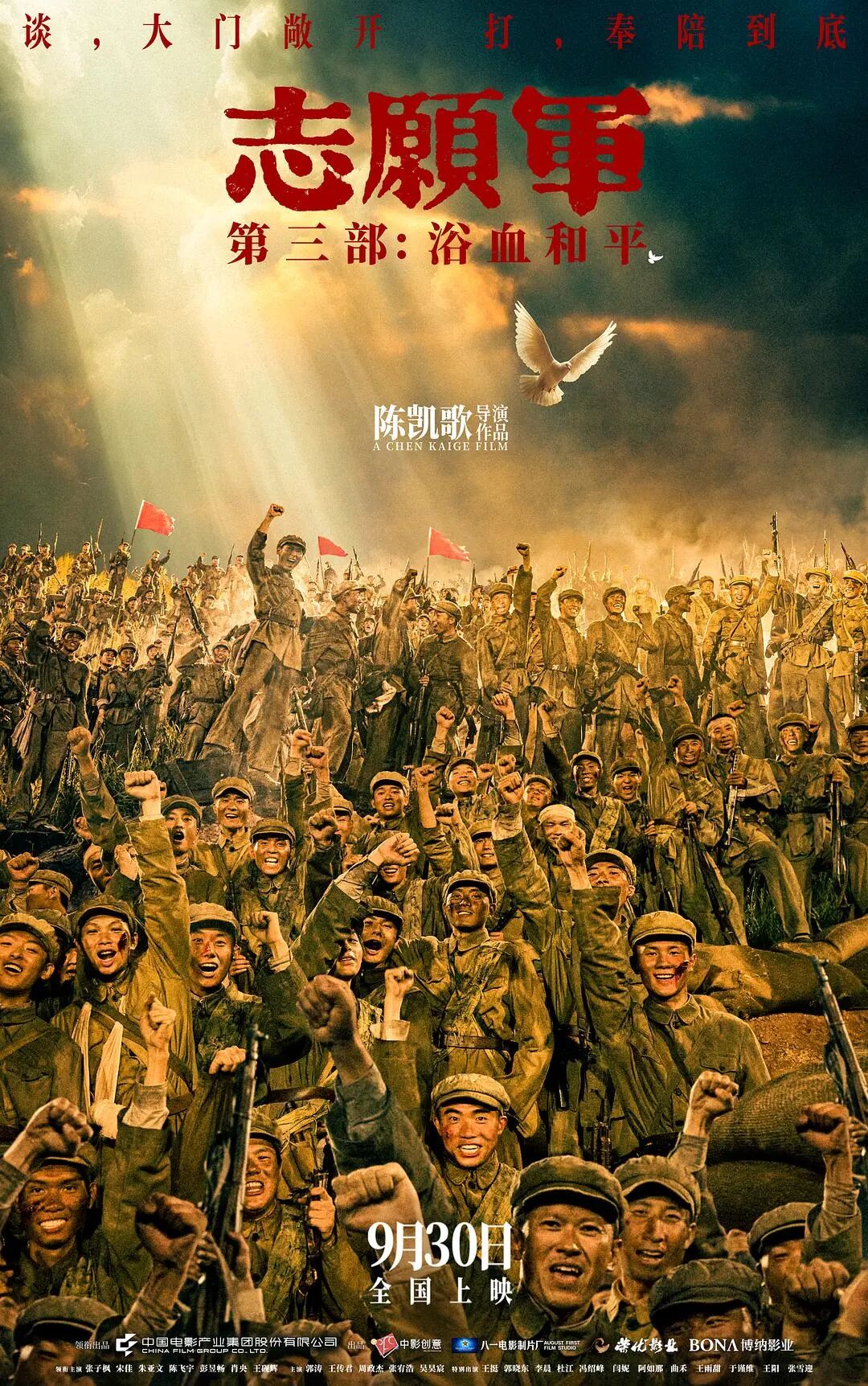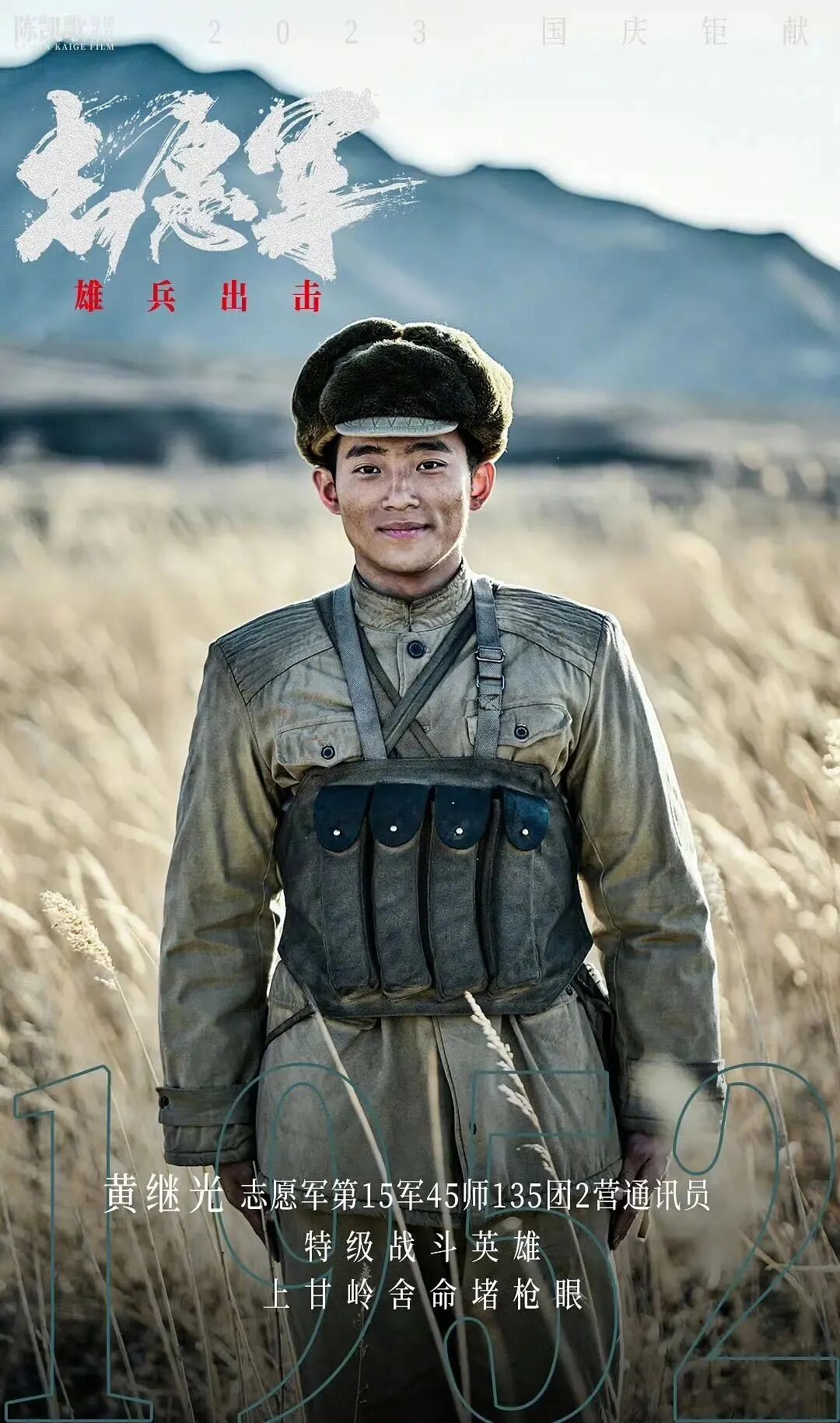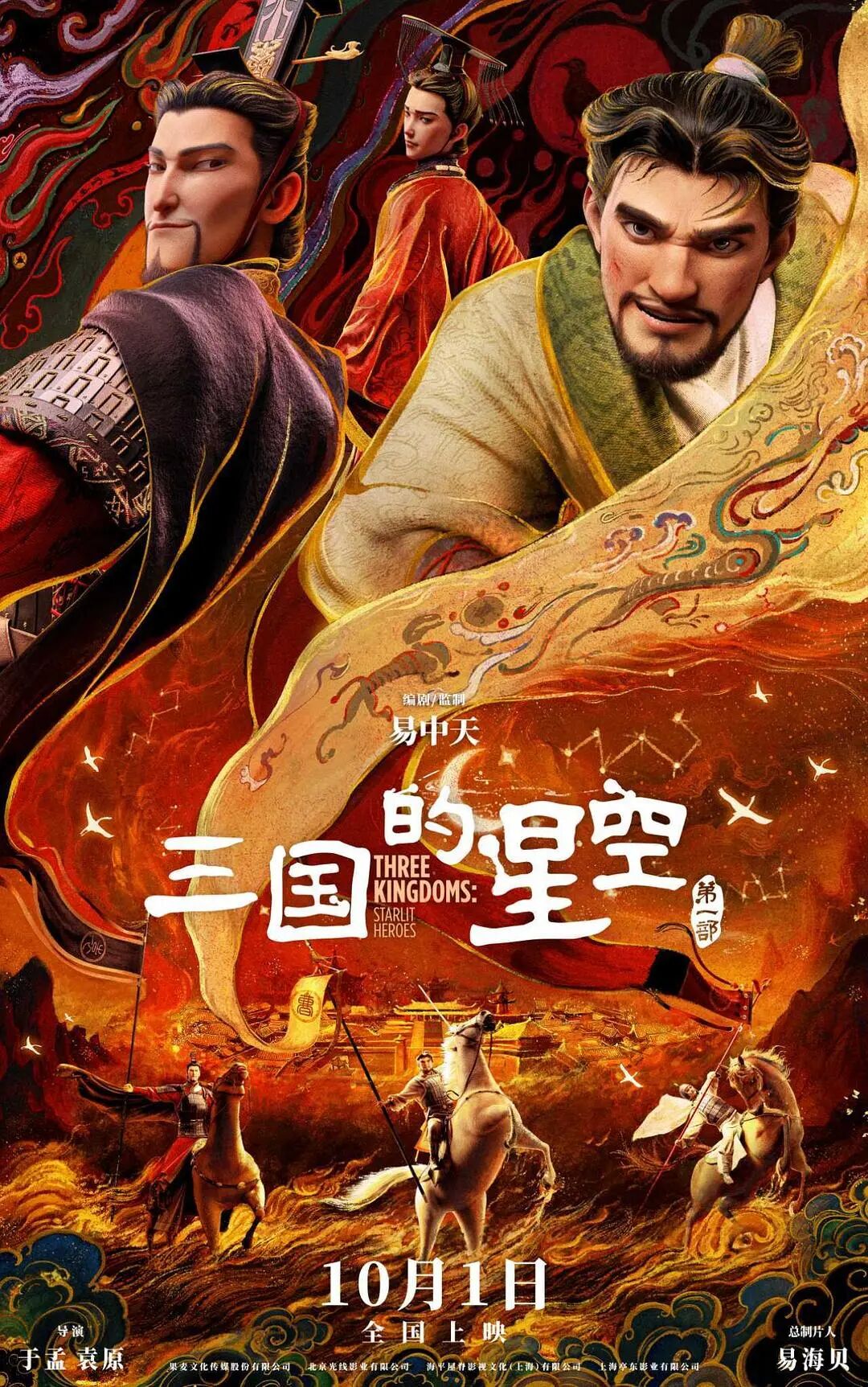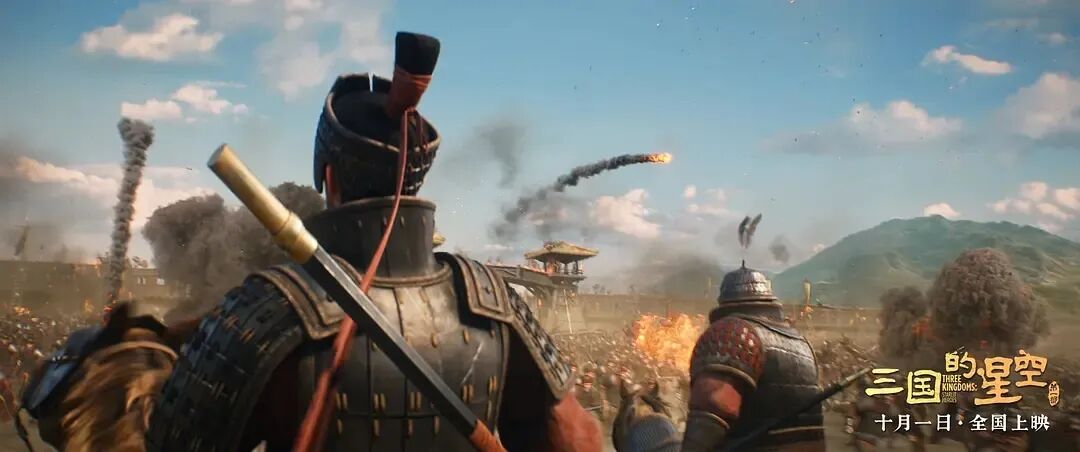BJIFF National Day Film Season Special Recommendation: A Historical Symphony, Echoes of Battlefields and Starlit Skies
October 1 marks both the first day of the National Day-Mid-Autumn Festival holiday and the official start of the National Day film season competition. Today, the "BJIFF National Day Film Season Special Recommendation" column proudly introduces two exceptional historical films: The Volunteers: Peace at Last and Three Kingdoms: Starlit Heroes.
As the concluding chapter of the perennial National Day tribute trilogy, The Volunteers: Peace at Last focuses on the "fighting while talking" strategy during the period from the end of the Fifth Campaign in the War to Resist US Aggression and Aid Korea up to the signing of the armistice. The front lines were smoke-filled battlefields with explosions, where US forces captured positions by day and Volunteer soldiers reclaimed them at night. Meanwhile, the rear witnessed intense, tit-for-tat confrontations within the neutral zone. US negotiation representatives repeatedly provoked incidents, even blatantly disregarding the "no firing in the neutral zone" rule by launching multiple military assaults on the negotiation personnel. As delegation member Li Xiao (played by Zhang Zifeng) and head delegate Lin Yueming (played by Song Jia) debate whether to "avenge on the front lines" or "strive for peace at the negotiation table", the conflict appears inevitably headed toward the logic of "if talks fail, resort to fighting".

Poster of The Volunteers: Peace at Last
The Volunteers: Peace at Last continues the grand epic narrative established by its predecessors, The Volunteers: To the War and The Volunteers: The Battle of Life and Death. The film brings back many familiar faces: Chen Feiyu as Sun Xing, a soldier from the Third Company; Zhu Yawen as military expert Wu Benzheng; Xiao Yang as frontline transport driver Zhao Annan; and Zhang Zifeng as interpreter Li Xiao. They are joined by renowned actors such as Song Jia, Guo Tao, Wang Chuanjun, and Peng Yuchang. This stellar ensemble cast, combined with visceral and realistic war sequences, collaboratively brings to life this sweeping story of "Resisting U.S. Aggression and Aiding Korea". This historical chapter has finally reached its cinematic conclusion, as we now live in a time of national peace and prosperity.
It is worth noting that Zhou Zhengjie, who portrayed the police officer "Alpaca" Liu Jinxiao in this summer's film The Shadow's Edge, delivers a powerful performance as Huang Jiguang, a Special-Class Hero of the Chinese People's Volunteers, in The Volunteers: Peace at Last. The textbook description, "he blocked the enemy's gun emplacement with his own chest", is now vividly translated onto the screen. The image of the young soldier's selfless bravery and utter fearlessness - his ultimate sacrifice to secure a chance for his comrades to counterattack - is profoundly moving.

Huang Jiguang in The Volunteers: Peace at Last
This heroic epic not only provides a unique political education opportunity in the new era, but it also prompts deep reflection on remembering history and strengthening our resolve for self-improvement. As Li Kenong, head of the Chinese government delegation, states in the film, "The Boxer Protocol fifty years ago left behind a photograph of its negotiations. What kind of photograph will we leave for those who will live in the twenty-first century in fifty years?"
Also released on October 1st is Three Kingdoms: Starlit Heroes, scripted and executive produced by renowned scholar, educator, and historian Yi Zhongtian. As the inaugural chapter of the series, the film chronicles the legendary rise of Cao Cao in the late Eastern Han Dynasty, including his campaign against Dong Zhuo, securing of the Emperor, victory at the Battle of Guandu, and ultimate ascent as a towering figure of his era.

Poster of Three Kingdoms: Starlit Heroes
In terms of the voice cast for Three Kingdoms: Starlit Heroes, the production team enlisted acclaimed young actor Tan Jianci to voice Cao Cao, while Lu Jinbo, chairman of Goldmye Culture & Media Co. Ltd., voiced Cao Cao's childhood friend and rival, Yuan Shao. Despite this being their first time dubbing an animated film, both delivered exceptional performances. The film vividly depicts the growth and legendary saga of this heroic figure - from Cao Cao's uprising against Dong Zhuo, surviving countless life-or-death struggles, to establishing agricultural garrisons in Xu County, strengthening his forces, and "holding the Emperor to command the nobles".
Meanwhile, one of the film's directors, Yuan Yuan is also a co-founder of Hongli Animation Studios. The film masterfully blends historical narrative with the robust artistry of Chinese animation, presenting grand-scale scenes like the Battle of Guandu with thousands of combatants. Visual effects, such as the catapults and the burning grain depot, maintain a consistently high standard of quality. With Yi Zhongtian's precise mastery of the historical text as its foundation, coupled with the continuous advancement in domestic animation special effects (evident in 2025 releases like Ne Zha 2 and The Legend of Hei 2), Three Kingdoms: Starlit Heroes is poised to satisfy audiences - whether as a family-friendly cinematic experience or as an educational supplement to children's exploration of history and literature.

A still from Three Kingdoms: Starlit Heroes
The serialization of domestic films has now become the norm. Taking 2025 alone as an example, the Spring Festival season saw releases like Ne Zha 2, Creation of the Gods II: Demon Force, and Detective Chinatown 1900, while the summer lineup included titles such as A Cool Fish 2 and The Legend of Hei 2 - all installments in established series.
The simultaneous presence of concluding chapters and inaugural films highlights the powerful wave of serialization sweeping through Chinese cinema, signaling the industry's maturation. For audiences, film series foster an "accompaniment-style" viewing habit, building enduring emotional connections with characters and narratives, transforming cinema-going into a long-awaited promise. For the industry, serialization reflects a refined industrial system that necessitates forward-thinking planning and standardized processes to reduce risks and maximize brand value. Most importantly, it allows Chinese stories to be told in greater depth and continuity, laying the groundwork for creating homegrown "cinematic universes" and demonstrating ambitious long-term vision.

